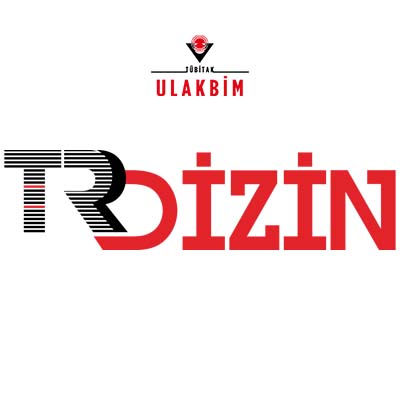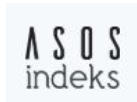Writing a Text for Raising Awareness about Values in Teaching Turkish as a Foreign Language -Poem Examples for B2-C1 Level-
DOI:
https://doi.org/10.15659/jancr.v8i2.162Keywords:
Türk Dili ve Edebiyatı, metin seçimi, Türkçe, edebiyatAbstract
It is known that literature courses are rich in terms of text variety and content. Education on elements related to values can be given through literary text types such as tales, stories, novels, epics, theater and poetry. It is of great importance in this regard that literary texts are written by taking into account aesthetic features. On the other hand, the fact that individuals learn their mother tongue and, accordingly, their culture in the homelands where they were born and raised also brings up the importance of making values recognized in teaching Turkish to foreigners. In addition, in the process of learning a foreign language, the cultural lives, value judgments, perspectives on life and qualitative approaches of the people of the geography where that language is used are important. It is known that values education and concepts related to this education are frequently included in curricula today. Values education, which begins in the family environment and continues in educational institutions, is important in terms of putting values into practice, adopting them and transferring them to future generations. In language teaching, the selection of the appropriate text for the purpose, ensuring the motivation of the target audience and the intended linguistic skill according to the selected text, asking the right questions to the text in understanding and comprehending the text, in other words, doing a good text analysis will increase the success of literary texts in language teaching. In this context, the aim of this study is to draw attention to the importance of writing texts aimed at raising awareness about values in teaching Turkish to foreigners. Information is provided on the issues to be considered in writing texts for the field. The Classification of Values According to Turkish Language and Literature Education was used as the data collection tool in the study. The original poems of the author of the study were evaluated to be used in the field. Based on the information to be presented in the study, the texts evaluated in the Findings section constitute an example for those learning Turkish at the B2-C1 level. The evaluation of the poems was made in the discussion section of the study using the Classification of Values According to Turkish Language and Literature Education table created by the researcher based on his previous studies; thus, the study was concluded based on the findings and discussion. As a result of the research, attention has been drawn to the issue of writing the texts to be prepared or selected for use in the field within a certain system and objectives. In this direction, ideas have been presented regarding working with texts that enable cultural comparisons in foreign language teaching, developing the target audience's language knowledge as well as increasing their personal experiences, providing them with different perspectives and providing opportunities such as comparing their own conditions with those of other countries. The provision of the mentioned opportunities depends on the quality of the texts to be used during teaching. In this respect, the texts prepared for foreign language teaching should include content that will ensure cultural communication and prepare the ground for the transfer of national culture. At the same time, the creation of the texts in question on the basis of a value classification is important in terms of developing the scientific and conceptual dimensions of the texts to be written. It is hoped that the research will be a response to the needs in the field.
References
Artuç Bekteş, S. (2022). Eğitimde kuramsal ve uygulamalı akademik araştırmalar -I- adlı kitap içinde Türk dilinin yabancılara öğretiminde değerlerin aktarılmasına yönelik metin yazma: B2 düzeyi için hikâye örneği bölüm. Editörler Turhan Çetin, Gökçe Kılıçoğlu, Erol Sözen. 1.Baskı. İstanbul: Hiperyayın, s:139-164.
Artuç, S. (2014). Türkçenin yabancı dil olarak öğretiminde şiir metinlerinden yararlanma. Ankara: Nobel.
Artuç, S. (2015). Sessiz Sâdâsız Şiirler. Ankara: Sarıyıldız Ofset.
Bekteş, S. (2022). Değerler eğitimi ve millî kimlik inşası çerçevesinde Türk Yurdu dergisindeki şiirlerin incelenmesi (Yayımlanmamış doktora tezi). Gazi Üniversitesi, Eğitim Bilimleri Enstitüsü, Ankara.
Benhûr, M.H. (2002). Türkçenin yabancılara öğretiminde tartışılmayan ana kavramlar. Doktora Tezi, Gazi Üniversitesi, Eğitim Bilimleri Enstitüsü, Ankara.
Çelikkaya, H. (1996). Fonksiyonel eğitim sosyolojisi. İstanbul: Alfa Yayınları.
Demirel, Ö.; Altun, E.; Ateş, A.; Başboğaoğlu, U.; Çelik, L.; Çeliköz, N.; Erişen, Y.; Oral, B.;Taşlı, H.; Tekinarslan, E. ve Yağcı, E. (2011). Öğretim teknolojileri ve materyal tasarımı. Ankara: Pegem Yayınları.
Ekiz, D. (2003). Eğitimde araştırma yöntem ve metodlarına giriş. Ankara: Anı Yayıncılık.
Ekşi, H. (2003). Temel insanî değerlerin kazandırılmasında bir yaklaşım: karakter eğitimi programları. Değerler Eğitimi Dergisi, Cilt I, Sayı 1. (79-96).
Kaplan, M. (1983). Kültür ve dil. İstanbul: Dergâh Yayınları.
Karagöl, E. (2018). Akademik yazma açısından lisansüstü tezler (Yayımlanmamış Doktora Tezi) Ankara: Gazi Üniversitesi Eğitim Bilimleri Enstitüsü.
MEB, (2001). Diller için Avrupa ortak başvuru metni: öğrenme, öğretme ve değerlendirme. 13 Eylül 2022 tarihinde bağlantıdan alınmıştır: http://ttkb.meb.gov.tr/meb_iys_dosyalar/2022_01/04144518_CEFR_TR.pdf
MEB (2018). Ortaöğretim Türk edebiyatı dersi 9, 10, 11 ve 12. sınıflar öğretim programı. Ankara: Devlet Kitapları Müdürlüğü.
Merriam, S. B. (1995). Case study research in education: A qualitative approach. San Francisco: Jossey -Bass.
Neuendorf, K. A. (2017). The content analysis guidebook. (2th ed.). Thousand Oaks, California: SAGE Publications.
Punch, K. F. (2016). Sosyal araştırmalara giriş nicel ve nitel yaklaşımlar (D. Bayrak, H.B. Arslan ve Z. Akyüz, Çev.). Ankara: Siyasal Kitapevi.
Turhan Tuna, S. (2014) Yabancılara Türkçe öğretiminde Türk halk edebiyatı metinleri kullanımı: Oğuz Kağan Destanı örneği. Turkish Studies - International Periodical For The Languages, Literature and History of Turkish or Turkic, Volume 9/3 Winter, p. 1481-1497, Ankara-Turkiye.
TMV, (2013). Türkiye Maarif Vakfı yabancı dil olarak Türkçe öğretimi programı. İstanbul: Bayem Ajans.
TMV, (2020). Türkiye Maarif Vakfı yabancı dil olarak Türkçe öğretimi programı. (2.baskı).İstanbul.
Uslu Üstten, A. ve Haykır, T. (2019). Türkçenin yabancı dil olarak öğretiminde metin seçimi. Kırşehir Eğitim Fakültesi Dergisi, 20(3), 1633-1652.
Yıldırım, A. ve Şimşek, H. (2011). Sosyal bilimlerde nitel araştırma yöntemleri. Ankara: Seçkin
Downloads
Published
How to Cite
Issue
Section
License
Copyright (c) 2024 Journal of Anatolian Cultural Research (JANCR)

This work is licensed under a Creative Commons Attribution-NonCommercial 4.0 International License.










